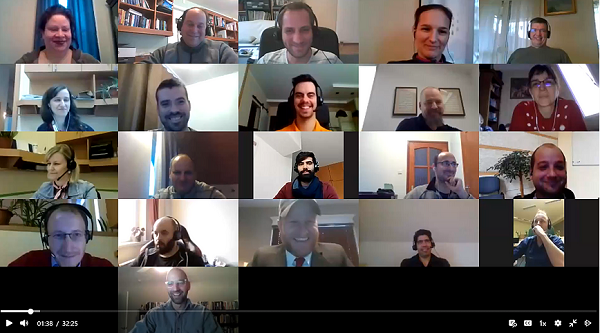Hostify of Jersey City Leverages Consumers’ Wi-Fi Networks as Hot Spots for LoRaWAN Helium Network
Andre Benz, a 24-year-old Jersey City resident who has been an entrepreneur since age 15, has always looked for new endeavors to pursue.
“I think it’s pretty exciting when I find a new passion for something,” he said. “I found this idea where you can place hot spots or nodes in people’s homes, and can subsidize their internet costs by allowing them to provide coverage for a network.
“I thought it was a really interesting idea, so I used my preexisting knowledge and expertise of music and entertainment — which primarily is in marketing and advertising — and I wanted to create a service that felt appealing, easy to use, and helped bridge the information gap between everyday people and the internet of things.”
Benz is the founder and CEO of Hostify (Jersey City), which leverages a consumer’s Wi-Fi network as a hot spot, keeps the community connected, and pays the Wi-Fi holder through the connectivity platform. Holders provide a portion of their connections in exchange for cash, and the connectivity is used to power connected technology initiatives in the users’ cities.
Instead of traditional 5G LTE or Wi-Fi, Hostify uses LoRaWAN (long range wide-area network), powered through the Helium Network, which is a low-frequency wireless network that uses blockchain. Running at 915 MHz, LoRaWAN can connect low-power devices that transfer lower amounts of data for far less than the cost of traditional telecom networks. It also reaches 200 times farther than all of them combined, according to the Hostify website.
Hostify customers receive a small box made by internet-of-things solution provider RAKwireless (Shenzhen, China) and distributed by CalChip Connect (Warminster, Pa.). Similar to an iPhone in width and length, and as thick as an average-sized book, the device has an antenna and is put on a windowsill or in any other accessible place. Benz said, “It’s pretty conspicuous. And then all we’ll do is connect the person’s Wi-Fi.”
According to Benz, the box uses about five watts of power, costing about $3 or $4 a year. “It’s very, very minimal, and it uses about one to five kilobytes per second of data, which is about as much as a text message.”
Established in September 2020, Hostify saw its business double during the month of June 2021. By renting a small portion of its hosts’ internet for a fee of $35 to $200 per month, Hostify is currently paying 100% of their internet bills.
“If somebody saw our ad, and it’s enticing to them, they would go to our website, they would apply to become a host, and then from there that information goes into our funnel,” Benz explained. “Our salesperson will identify it as a place that can either provide good or bad coverage.”
Hosts need a nearby power outlet, Wi-Fi or ethernet, and a window that has a clear view with no obstructions. Obviously, if it provides good coverage, the salesperson will “reach out to you and say, ‘You’ve been approved to become a host for Hostify.’” After a hosting agreement is signed, a hot-spot box is set up in the person’s home by a Hostify technician.
The idea has been embraced, especially in New Jersey. “New Jersey is a pretty packed state,” said Benz, who is originally from Kenilworth, but lived during the past few years in California. “Coming back to New Jersey and building this network is extremely valuable because I think, first of all, that no one should ever live in a state in the United States, in my opinion, that [doesn’t] have internet connection. Primarily, in New Jersey, I think most people do [have internet], but some are actually told by these telecom giants that you cannot get your service or internet beyond just one provider.”
He cites the Jersey Shore as an example. “If you were to go down to Lavallette, New Jersey, or Point Pleasant, you can only get one service provider down there,” so people can’t get competitive pricing or access competitive models in terms of speed. “For someone to be a part of this, they can help build this decentralized network that goes beyond just this one service provider. They can start building a network that can be used by other companies that can help fuel their local neighborhood.”
Benz admitted that there has been some skepticism from potential customers, but he has found that once a user signs as a host, “they realize how simple it is and what they’re actually providing the local community. They’re pretty hands on and really happy about the service of their partnership.”
The number-one concern for potential Hostify customers is security. Benz, who believes in being transparent and upfront, said the platform is secure, and that any hacking or stealing of a host’s data or personal information simply won’t happen. “For these devices,” he says, “every single time a data packet is sent or received, it is encrypted in an AES [Advanced Encryption Standard], which is listed as a high-standard protocol for security encryption. And, obviously, the hot spots themselves are FCC approved.”
Hostify is hiring in New Jersey. “All of our employees are from the Garden State,” Benz said.



